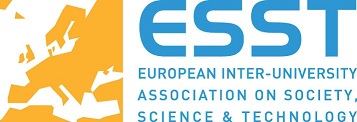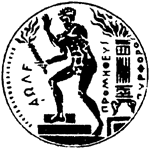Specialization: Science, Technology and Sustainability: North-South Comparisons

Description
The specialization aims at providing an in-depth understanding of sustainability issues as they may be connected to specific technological and scientific artefacts and infrastructures. The emphasis will be placed on artefacts and technological-scientific networks of relevance to renewable and conventional energy, transportation, ICT, water management, infrastructures supporting natural conservation and biodiversity. Students will study and research how socio-technical changes interact with geopolitical variables, through a comparison of the experiences with technology and science in the European north and south. The specialization is designed so as to provide an elaborate understanding of the actors, concepts and policies involved in the definition and pursuit of sustainability, through exposure to comparisons of technological-scientific experiences that are shaped by contrasting natural and social environments. The specialization combines training in both theoretical perspectives and empirical cases from various countries.
On completion of the specialization, the student should be able to:
![]() approach general trends regarding sustainability issues through a comparison of northern versus southern experiences,
approach general trends regarding sustainability issues through a comparison of northern versus southern experiences,
![]() identify and evaluate actors and sectors that are keys to sustainability in countries of the north and the south,
identify and evaluate actors and sectors that are keys to sustainability in countries of the north and the south,
![]() demonstrate knowledge and understanding of artefacts and technological-scientific networks of relevance to renewable and conventional energy, transportation, ICT, water management, infrastructures supporting natural conservation and biodiversity, in the context of north-south comparisons,
demonstrate knowledge and understanding of artefacts and technological-scientific networks of relevance to renewable and conventional energy, transportation, ICT, water management, infrastructures supporting natural conservation and biodiversity, in the context of north-south comparisons,
![]() relate sustainability issues to science and technology on a global, European, national and local context.
relate sustainability issues to science and technology on a global, European, national and local context.
People
Host Institution/Partners
This specialization is offered by the Graduate Program in the History and Philosophy of Science and Technology–GPHPST (National and Kapodistrian University of Athens and National Technical University of Athens) through collaboration with other groups of ESST researchers. In year 2012-2013, the specialization will involve a group of researchers from the Department of Thematic Studies (Linkoping University).
Coordinating Faculty
Aristotle Tympas (tympas@phs.uoa.gr) and Vasilis Galis (vasilis.galis@liu.se) at the Department of Thematic Studies, Sweden.
Research Teams
Sweden
Claes-Fredrik Helgesson, Professor (Department of Thematic Studies, Linkoping University)
Teresia Svensson, Senior lecturer (Department of Thematic Studies, Linkoping University)
Johan Hedrén, Senior lecturer (Department of Thematic Studies, Linkoping University)
Wiktoria Glad, Senior lecturer (Department of Thematic Studies, Linkoping University)
Greece
Stathis Arapostathis, Lecturer, PhD (Oxford University 2006)
Spyros Tzokas, PhD (National and Kapodistrian University of Athens/National Technical University of Athens, 2011)
Irene Anastasiadou, PhD (Technical University of Eindhoven, 2009)
Alexandros-Panagiotis Oikonomou, PhD (Imperial College, 2011)
Dimitris Tsouxlis, PhD (University of the Aegean, 2011)
Introductory Course
The specialization includes an introductory course (first six weeks of the spring ESST semester), which incorporates a series of lectures by teachers invited from both within and outside the ESST community. This introductory course is required for all specialization students. By the end of specialization course, the students are expected to submit an ESST thesis research design, which has to include a theoretical review, a methodological account and a plan of primary research.
Through readings that are chosen so as to offer comparisons between the north and the south, the introductory course will focus on the following clusters of issues:
1. competing definitions of sustainability; influence of various corporate practices/strategies such as greening, green-washing, acceptance studies, environmental risk-management, environmental labeling and other economic practices and motives for sustainable production and consumption,
2. debates over the emergence of technical and scientifical expertise on sustainability; introduction to processes by which social groups claim the right to participate in the configuration of sustainability issues; modes of engagement of the civil society in issues of relevance to natural and social sustainability,
3.
alternative patterns regarding the relationship between dominant institutions (of the civil society, of the government and the state, of the market and the industry) and sustainability issues and policies,
4. comparisons of policies by local authorities, national governments and parties, which play an important role in the making of sustainability politics by establishing practices, regulations, agencies and programs-projects.
Representative Literature
- Warwick, Anderson and Vincanne Adams (2008), ’Pramoedya’s Chickens: Postcolonial Studies of Technoscience’, in E. Hackett et al. (eds.) The Handbook of Science and Technology Studies, Cambridge, MA and London: The MIT Press, Chapter 8 (pp.181-204),
- Gavroglu, Kostas et al. (2008), “Science and Technology in the European Periphery”, History of Science, 46: 153-175,
- Hedrén, Johan and Björn-Ola Linnér (2009), “Utopian thought and the politics of Sustainable Development”, Futures, 41(4): 210-219,
- Hedrén, Johan (2009), “Shaping sustainability: is there an unreleased potential in utopian thought?” Futures, 41(4): 220-225,
- Lagendijk, Vincent (2008), Electrifying Europe: The Power of Europe in the Construction of Electricity Networks, Amsterdam: Aksant,
- van der Vleuten, Erik and Arne Kaijser (eds.) (2006), Networking Europe. Transnational infrastructures and the shaping of Europe, 1850-2000, Sagamore Beach, MA: Science History Publications,
-Sovacool, Benjamin K. (2010), “The importance of open and closed styles of energy research”, Social Studies of Science, 40(6): 903-930.


